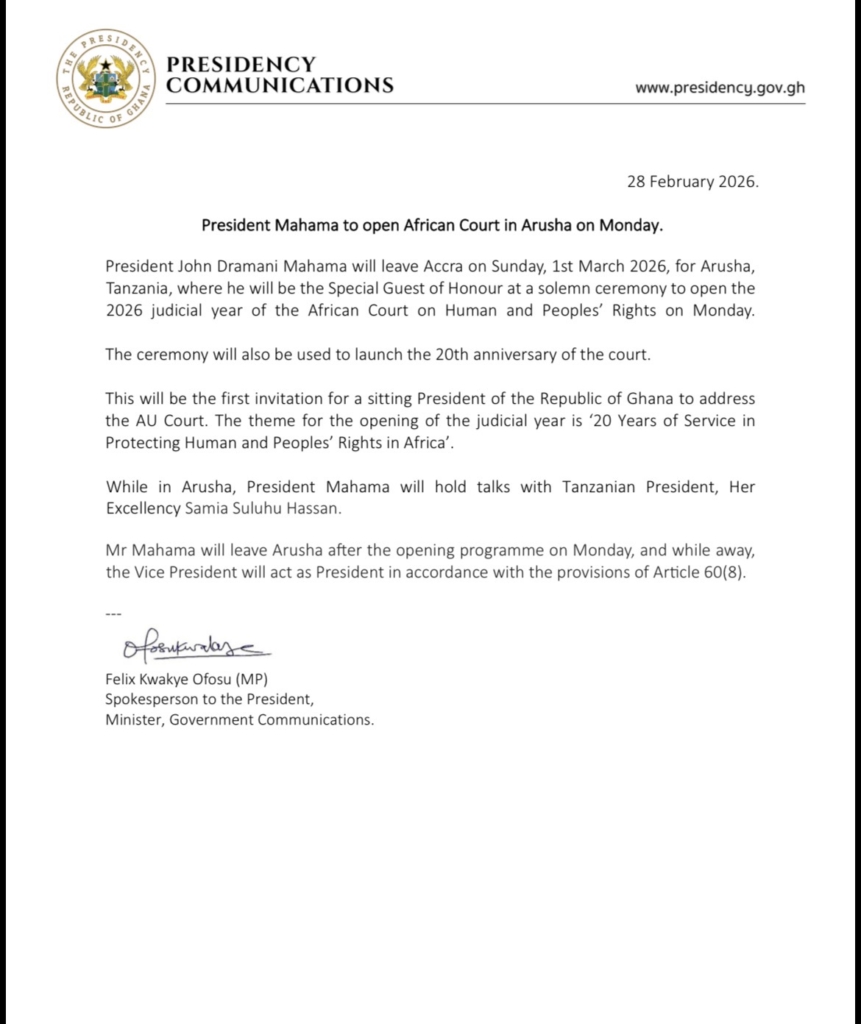
In recent years, Ghana has seen a troubling trend in some prophetic ministries. Certain self-styled prophets publicly predict the imminent deaths of politicians, celebrities, and other leaders. These pronouncements are often shared during livestreamed services, creating fear and anxiety among citizens. Too often, the goal is not to edify God’s people but to showcase the prophet’s “spiritual power.”
While prophecy is biblical, this sensationalism distorts its God-given purpose. In ancient Israel, prophets were not primarily future-tellers but messengers of God, called to speak His truth, urge repentance, warn of judgment, and offer promises of restoration. Their ministry was rooted in righteousness, not spectacle. Isaiah, Jeremiah, Amos, and others addressed injustice, idolatry, and moral decay, often at great personal cost. When they spoke of the future, it was to guide God’s people, not for personal acclaim. True prophecy builds up and encourages the faithful (1 Corinthians 14:3), never spreading fear.
The Core Duty of a Prophet
A prophet’s true role is to represent God faithfully, calling people to repentance (Joel 2:12–13), defending the marginalised (Isaiah 1:17), speaking truth to power (2 Samuel 12:1–7), and encouraging obedience to God’s covenant (Deuteronomy 30:19–20). They are watchmen (Ezekiel 33:7), alerting people to moral and spiritual dangers, not dispensers of unverified and sensational announcements.
The role of Discernment
Prophets must discern messages genuinely from God versus ideas influenced by ambition, fear, or public pressure. Scripture warns that not every prophecy is authentic. Discernment requires prayer, humility, and accountability to Scripture and spiritual leaders. True prophets test revelations against God’s Word, ensuring their messages promote righteousness, hope, and love rather than panic, division, or personal gain. Without this, prophecy risks becoming sensationalism instead of divine guidance.
The Problem with Death Predictions
Publicly announcing that a specific individual will die soon, without the person’s consent or a clear, God-given purpose, is deeply problematic. First, it shifts the focus away from God’s glory and toward the prophet’s supposed accuracy. Second, it creates unnecessary distress for the individual, their family, and the wider public. Third, it fosters a culture of fear rather than a culture of faith.
In Scripture, God sometimes revealed impending death—but always within a clear redemptive purpose. For example, the prophet Isaiah told King Hezekiah to set his house in order because he would die (2 Kings 20:1). Yet even here, the exchange happened in private, and it led to earnest prayer and divine intervention. It was never a public stunt to demonstrate prophetic prowess.
When the State “Overreaches”
In response to the growing public alarm, the government of Ghana has reportedly urged prophets to submit their prophecies for review, especially when they affect government officials. While the intention may be to prevent fear-mongering, this move is also problematic. It risks infringing on religious freedom and could place secular authorities in the role of gatekeepers for spiritual messages—something neither biblical nor democratic principles support. Regulation of prophetic speech must come primarily from within the faith community itself, through accountability, pastoral oversight, and adherence to Scripture. Civil law should only intervene where speech clearly violates laws against threats, incitement, or fraud.
A Call for Prophetic Integrity
What Ghana needs is not the silencing of prophets but the raising up of true prophets—men and women who, like Elijah, Nathan, and Deborah, fear God more than they fear losing followers or influence. These are prophets who will declare God’s word even when it is unpopular, who will comfort the broken-hearted, challenge the complacent, and inspire the faithful to live righteously. Prophecy should lead to repentance, deeper faith, and greater love for God and neighbour. If a “prophecy” breeds fear, division, or hero-worship of the prophet, it has missed its mark.
Conclusion
The prophetic ministry is too sacred to become a sideshow. Ancient Israel’s prophets remind us that God’s messengers are heralds of righteousness, not fear merchants. Today, prophets must reclaim this biblical mandate, and the faithful must test every spirit (1 John 4:1), holding fast to what is good and rejecting what is false. Ghana needs prophets of righteousness, not prophets of panic—voices that point to the coming Messiah, not to their own platforms, and that build faith rather than fear.
Read Also: Tragedy: God picking favourites?

